| |
|
| |
|
This
church will be a familiar sight to anyone who
regularly takes the hellish A140 road from
Ipswich to Norwich - or, indeed, the other
direction. When the great road came it split this
little village in two, and even today the
children take their lives in their hands as they
cross to school on the other side of the road
from most of the village houses. On the road
itself is a fine former Baptist chapel, but All
Saints is tucked away in gentle folds among
winding lanes, and in fact Stoke Ash is a most
pleasant village with an abundance of older
houses. Still, having to travel out on to the
A140 every time you want to leave home must get a
bit tiresome after a while. All Saints
is a thoroughly Victorianised church, and the
restoration was by diocesan architect Richard
Phipson - that is to say, it was a quiet,
middlebrow one which generally preserved the
rustic nature of this little country church. The
crispness of Phipson's renewed exterior (the
Decorated windows are all his) is softened
inside.
| There is no coloured glass,
and this is a peaceful place with clear
light falling across simple furnishings.
The font appears to be a medieval
survival, but all of its faces have been
smoothed clean. The royal arms of William
IV are displayed above the door, as if to
keep any ideas which are too Victorian in
check, and in truth it is hard to see
that All Saints can ever have been
particularly High Church or
ritualistic.The great medieval survival
of the church is the rood loft stairway,
which rises up inside a window embrasure
on the north side. This is not terribly
unusual, and similar survivals in Suffolk
at Whepstead, Barningham
and Oakley
are perhaps more elegant. But it tells us
much about Phipson that he left them as
they were. The original Roll
of Honour survives for Stoke Ash, filled
in by the Rector as the War progressed.
Remarkably, of the 39 Stoke Ash boys who
went away to the Great War, only one
failed to return. Joseph Archie Moss was
a Private in the 1/7 Batallion of the
Kings (Liverpool Regiment). He was killed
on 31st July 1917 and is buried at Hooge
Crater Cemetery near Ypres, Belgium. He
was awarded the Military Medal, and the
little brass plaque beside the south
doorway records that the reredos was
erected in his memory.
|
|
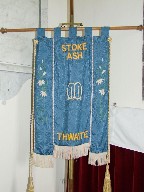 |
|
|
|
Simon Knott, April 2011
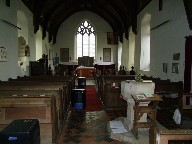 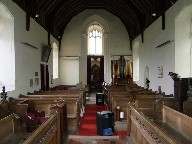 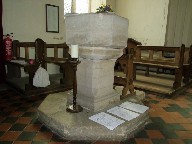 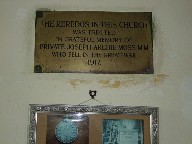
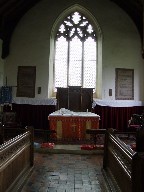 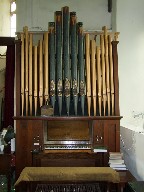 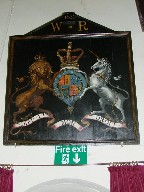 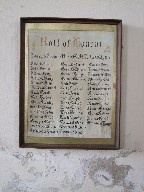 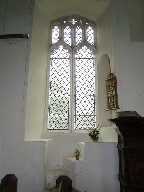
Amazon commission helps cover the running costs of this
site.
|
|
|

